Until late last year, the second-tier Chinese city of Wuhan on the banks of the Yangtze River was little known outside Asia. One factor that made the otherwise unremarkable city stand out was its openness to overseas investment, which helped turn it into a manufacturing and tech hub — Wuhan ranks 13th in JLL’s latest City Momentum Index.
Then in December, Wuhan started to stand out for all the wrong reasons. The Chinese government informed the World Health Organisation about a cluster of cases of pneumonia in the city.
Within days, Wuhan found itself at the epicentre of a novel coronavirus outbreak christened Covid-19, which spread swiftly across the city and wider Hubei province.
Before long, and despite the introduction of a strict lockdown in the worst hit locations, it was no longer a local or even national problem, it was a global one, with experts predicting a hideously high death toll across the world and a global economic downturn more serious than the Great Depression in the late 1920s and 30s.
Then, an unexpected glimmer of light appeared at the end of the tunnel. In March, just as the UK was starting to enter lockdown, the Chinese government claimed numbers of deaths and infections were falling. It started to ease restrictions in a bid to kickstart the economy and set the country on the road to recovery.
Now, all eyes are on the pandemic’s ground zero to see how China is emerging from the crisis and get an idea of what might lie in store for the UK in the coming weeks and months.
Property Week talked to senior agency figures based in China to find out how they are finding life after lockdown.
Many of the restrictions that came into force in China coincided with the Chinese New Year spring festival celebrations in late January, which is marked by a week-long holiday. During this period Chinese nationals typically travel domestically or overseas to visit families and many businesses shut down.
A lull in activity
There is typically a lull in activity in sectors such as the property industry, while for the food and beverage and leisure sectors, it is a boom time as people enjoy the festivities.
Not this year. As the virus spread, the government started to impose restrictions, which differed from city to city and province to province, in a bid to slow it down.
In Wuhan and the wider Hubei province, people were confined to their homes. In Shanghai and Beijing, the restrictions were much looser.
“Beijing was never on full lockdown,” says Nicholas Holt, head of research and consultancy, Asia Pacific at Knight Frank, who is based in the company’s Beijing office.
“A lot of businesses closed, but you could always walk around on the street and there were some restaurants and shops open the whole time.”
Holt continued to work in the company’s Beijing office while the restrictions were in place and recalls it being a pretty lonely existence.
“I came into the office the whole time, but for most of February I was on my own,” he says. “From 1 March, people started coming back into the office, but we were restricted to 50% [of staff] in the office [at any one time] because they didn’t want people packed in, so we put a rota in place.
“That was a local government ruling and also a district ruling, which was finally lifted in mid-April, so that now we can be back up to 100% in the office.”
In Shanghai, the authorities took a somewhat different approach. James MacDonald, head of China research at Savills, says the New Year holiday period was initially extended by a few days and then by a week to 10 February, which is when many people in the city started to work from home.
MacDonald worked from home throughout February and returned to the office in early March. Strict measures were implemented to ensure employee safety and landlords and company HR teams had to get approval from the local government before they were allowed to resume operations.
“Only after you got approval to make sure you had the proper HR policies in place were you then allowed access to your buildings,” says MacDonald.
Employee safety
Savills took a multi-pronged approach to employee safety, which included a staff rota system to ensure social distancing measures were observed — as of mid-April, its whole office network in China had reopened, but not all offices were necessarily back up to full capacity.
“We also had staggered working hours, so some people came in a little earlier and some people came in later,” says MacDonald. “That was not necessarily just to have an impact in terms of office space, but so that people were not all coming in during commuting hours and crammed into public transportation.”
Lunch breaks were staggered so large numbers of the team were not in the canteen at the same time and the office air conditioning was switched off and windows opened to allow natural ventilation, because of the airborne nature of the virus.
Strict measures were also rolled out to control access to the company’s building to ensure no one displaying symptoms was allowed inside.
In addition to the use of temperature scanners at the entrance to the building, the Savills team were issued with a paper document that they were required to show before entering the office. The document confirmed that the holder had been in Shanghai for at least the previous fortnight.
There are still some travel restrictions in place in China, so if someone visits a region where more severe restrictions remain in place they must self-isolate for 14 days on their return.
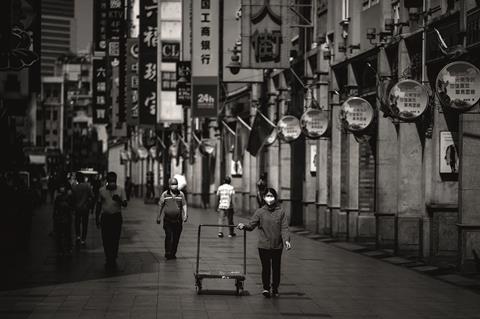
‘Health codes’ have also been introduced to try and control the spread of the virus. MacDonald has one on his phone on the app for online retail giant Alibaba’s Alipay payment platform.
“It looks at where I’ve travelled to and who I’ve come into contact with in the past,” he explains. “This information generates a QR code and if the QR code is green it means I’m low-risk; if it’s orange it means I may have come into contact with a suspected case; and if it’s red it means I should not be allowed into any premises and should socially isolate.”
MacDonald says that to gain access to certain buildings in Shanghai he has to show his QR code. Holt adds that temperature checks are also commonplace throughout China.
“You get your temperature taken everywhere you go,” he says. “If I go to a shop, I get my temperature taken. When I come into the office, I get my temperature taken. If your temperature is high, you have to go and get tested and if your test is positive, then they do all the contact tracing and bring everybody in for testing.”
The problem is that with the authorities constantly trying to suppress further outbreaks, the situation is so fluid that guidance and restrictions are changing all the time and differ from location to location.
“You have national policies, municipal policies, district policies, sub-district policies, property management policies — so there’s a whole range in terms of how restrictions are applied,” says MacDonald.
“It’s difficult to try to say ‘China did this, or did that’ because China implemented a whole range of different policies at different levels.”
Activity halted
One thing that we can say with some certainty at this stage is that immediately following the implementation of restrictions relating to Covid-19, economic activity across China pretty much ground to a halt.
“When restrictions were introduced in mainland China, large pockets of the economy were immediately impacted given that the population was largely immobilised,” says Roddy Allan, chief research officer, Asia Pacific, at JLL.
“Discretionary retail took the largest and most immediate hit, while other industries such as manufacturing were also influenced by government measures given the lack of accessible labour.”
The property sector was not immune. “In terms of the direct impact on the real estate market, some leasing deals were put on hold,” says Allan. “It was similar to some extent with investment, although deals were still taking place.”
China implemented a whole range of different policies at different levels
James MacDonald, Savills
Holt reports that very little happened in the real estate sector in February because most people were working from home and most businesses had closed.
However, in some industry sectors business activity remained strong despite the restrictions. “Logistics continued to operate,” says Henry Chin, head of APA/EMEA research at CBRE. “Online grocery sales were up circa 200% during the Chinese New Year period.”
Allan agrees that the industrial and logistics sector stand out as having “weathered the storm and will likely continue their growth trajectory as life normalises in mainland China”.
However, as has subsequently been seen elsewhere, retail took a battering. “Except from food retailing, all other types of retail struggled,” says Holt. “A lot of restaurants and bars really struggled and just around the area where I live, I know of one restaurant and a bar that’s gone out of business.”
Office impact
Accurately assessing the impact on sectors like the office market is slightly more complicated due to the nature of the Chinese leasing and investment market.
“You’re often working on an investment deal for around six months, so there is very little visibility as to whether that has been impacted by that two- to three-week shutdown because it’s such a protracted period,” explains MacDonald.
“As for the commercial leasing market, you have three-year leases in China and occupiers tend to start looking at relocating or renewing around six months prior to the end of the lease contract.
“So a number of those occupiers that needed to move over that period of time [during the lockdown] would have already started negotiations and they would have probably already looked at some locations, so it might have been more of an online negotiation in terms of the final terms, or just putting pen to paper.
“As for those occupiers who had just started the process of looking for space, a lot of those would have stopped because you couldn’t get access to physical premises.”
During the first quarter of this year, overall office leasing volumes were down, according to JLL, with renewals being the preferred choice as companies looked to steady the ship during this turbulent economic period.
Although it may still be tricky to gauge the longer-term impact the government-imposed restrictions had on leasing and investment activity, what is clear is that the supply of some new-build offices has been delayed.
“Most office buildings in China are speculative builds, so you don’t have any pre-commitments,” says MacDonald. “Some of that supply has now been pushed back and that should offset some of the drop in terms of demand.
“We are expecting to see a drop in terms of a net increase in demand, but we would still expect the occupier base to grow. However, it’s unlikely to grow as fast as in the past.”
A couple of “mega trends” in the office market should help shore up demand in the short to medium term, he adds. For instance, the Chinese government recently opened up the financial markets to allow international finance firms to access certain sectors of the market, which is expected to lead to new space requirements, particularly in Shanghai.
Another trend expected to lead to new requirements is the recent entry of some of the large domestic tech companies such as Alibaba and WeChat to the financial sector via their own payment platforms.
It is also anticipated that some of China’s traditional banking institutions will attempt to grow their own operations in an effort to fend off competition from overseas finance firms and domestic tech players alike.
Strong performers
Many companies that benefited from a boost in business thanks to the pandemic are also on the lookout for office space, including pharma and medical businesses, telecoms companies and online education platforms.
JLL’s Allan says the company is already starting to see some of these domestic firms committing to office expansion.
“Leasing activity is being largely driven by domestic firms that have become more embedded into the mainland China economy during the outbreak,” he says.
“Tech, online gaming, healthcare and insurance have all performed strongly and many firms are thus looking to expand their office footprint to support business growth.”
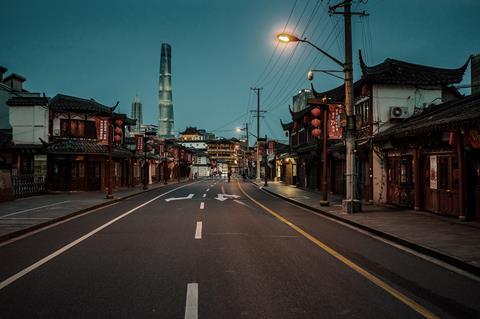
This is confirmed by Savills’s latest Global Market Sentiment Survey, which found office leasing activity “increased moderately” in the first half of April.
Another surprising beneficiary of the lockdown – and one that will disappoint climate change activists hoping the clear correlation between the reduction in traffic pollution and a cleaner environment might prompt lasting change – appears to be the country’s automotive industry, which has been struggling in recent years.
“I hear automotive is doing well,” says Holt. “The roads are busy now here in Beijing and in Shanghai. In fact, I was chatting to a colleague in Shanghai the other day and he said the roads are busier than before.
“When I asked him why, he said it’s because people don’t want to go on public transport anymore so they’re using their own cars and a lot more taxis.”
We are revising down all forecasts in retail and offices
Henry Chin, CBRE
Another sector that even more surprisingly could be poised to benefit from the fallout from Covid-19 is retail.
CBRE’s Chin says that as of the end of March, 95% of China’s malls were operational and footfall had increased, although only back to 50% of normal levels, partially due to social distancing measures.
General fashion continues to struggle post lockdown, but at the luxury end of the market the picture looks somewhat healthier as consumers indulge in what has been described as “revenge spending”.
“The Hermes store in Guangzhou registered $2.7m of sales in a day when it re-opened,” says Chin. “I do not think it is common, but it shows you the pent-up demand.”
Indeed, the government estimates retail spending will reach a staggering $200bn post-Covid-19. “Because Chinese tourists are unlikely to travel abroad this year, a lot of that outbound international tourism will be refocused on the domestic market and if that luxury consumption takes place within China, that could be very, very positive for the luxury market potentially,” says MacDonald.
Foreign retailers
Allan believes the retail leasing market is likely to take longer to recover than other sectors due to social distancing measures. However, he has already detected some green shoots.
“We are seeing foreign retailers seizing this as an opportunity to open stores in locations where previously they may have had too much competition to compete on securing a lease,” he says.
However, even if China is now on the road to recovery, the threat of further outbreaks or a second wave of Covid-19 is ever present and could force the authorities to re-introduce stringent measures at any time.
Meanwhile, huge damage continues to be done to its economy as other countries remain on lockdown.
While China is less dependent on exports than it has been historically, they still account for a significant amount of its trade and that trade has been severely affected by the global lockdown.
China’s recovery depends largely on that of the global economy, agrees Chin.
“The impact of Covid-19 is significant and far greater than SARS and the GFC [global financial crisis],” he says.
“We are revising down all forecasts in retail and offices, particularly in China. Recovery is generally starting, but the risk with China’s recovery story is with global demand.
“The shutdown of the global markets means that the recovery will take longer than we originally anticipated.”
As for Wuhan, where the virus is reported to have originated, it is too early to say what the long-term damage might be as restrictions were only eased early last month.
In terms of its economic recovery, Holt estimates it is probably five weeks behind other cities in China. He adds that “a lot of people were talking about this city as one to think about for the future” prior to the outbreak of Covid-19.
Wuhan may one day deliver on its promise, but it will have to shake off the reputational damage caused by its role in the Covid-19 pandemic first.
Meanwhile, the tentative signs of recovery in China since restrictions have been eased should be cause for optimism in other countries around the world still in the grip of the Covid-19 pandemic.
The UK is thought to be about two months behind China in terms of the spread of the virus. As it gears up to return to work, hopefully within the next few weeks, the hope is that it will have learned the lessons from those that went before it and adapted its lockdown exit strategy accordingly.
























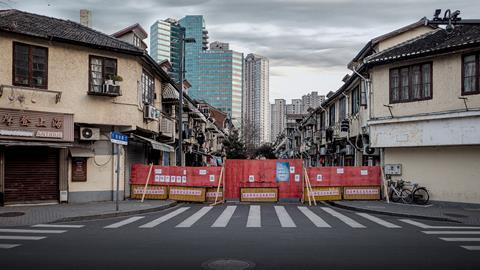
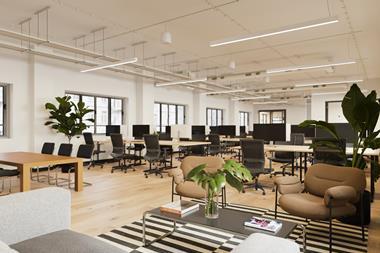
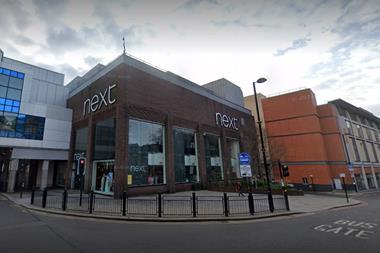
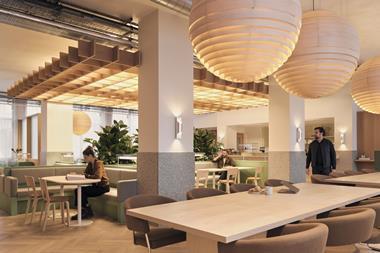
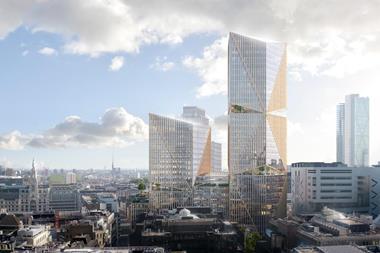
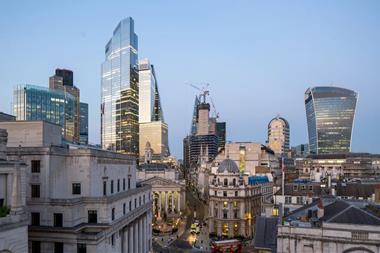

No comments yet